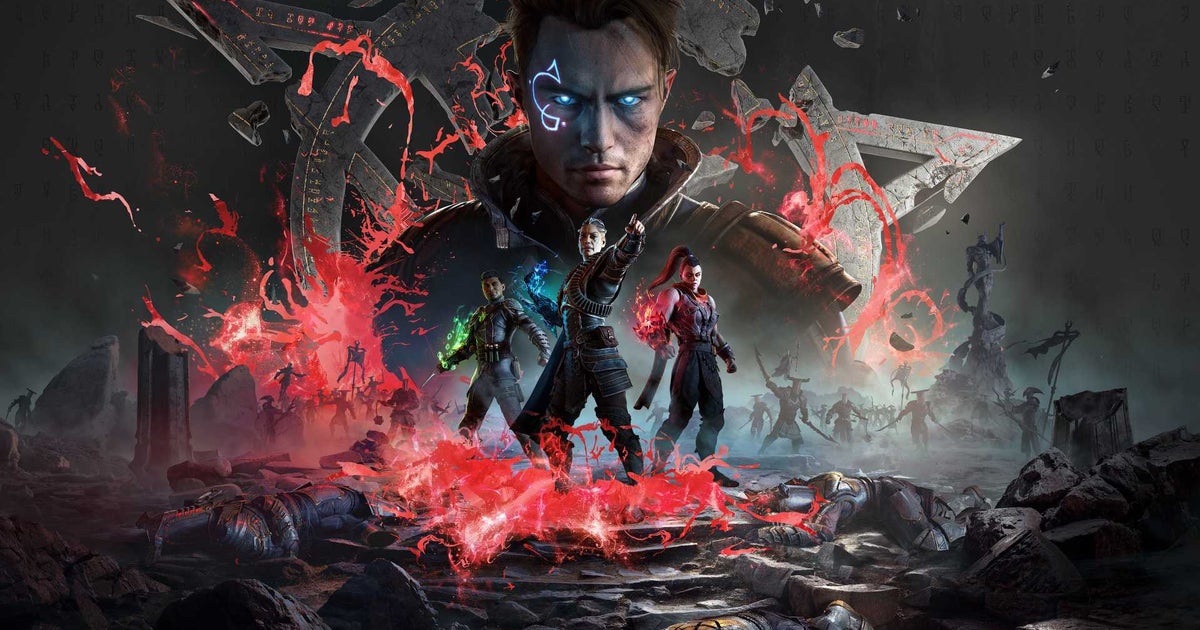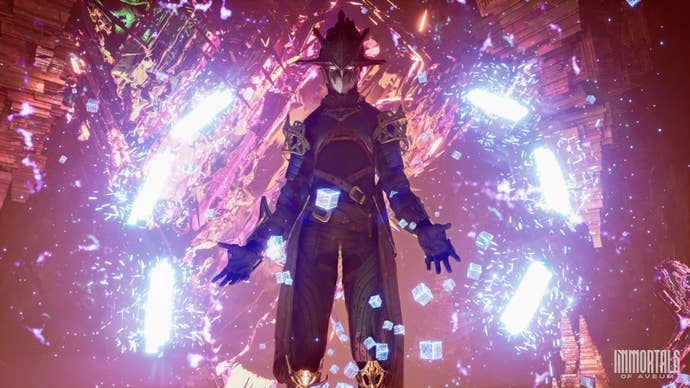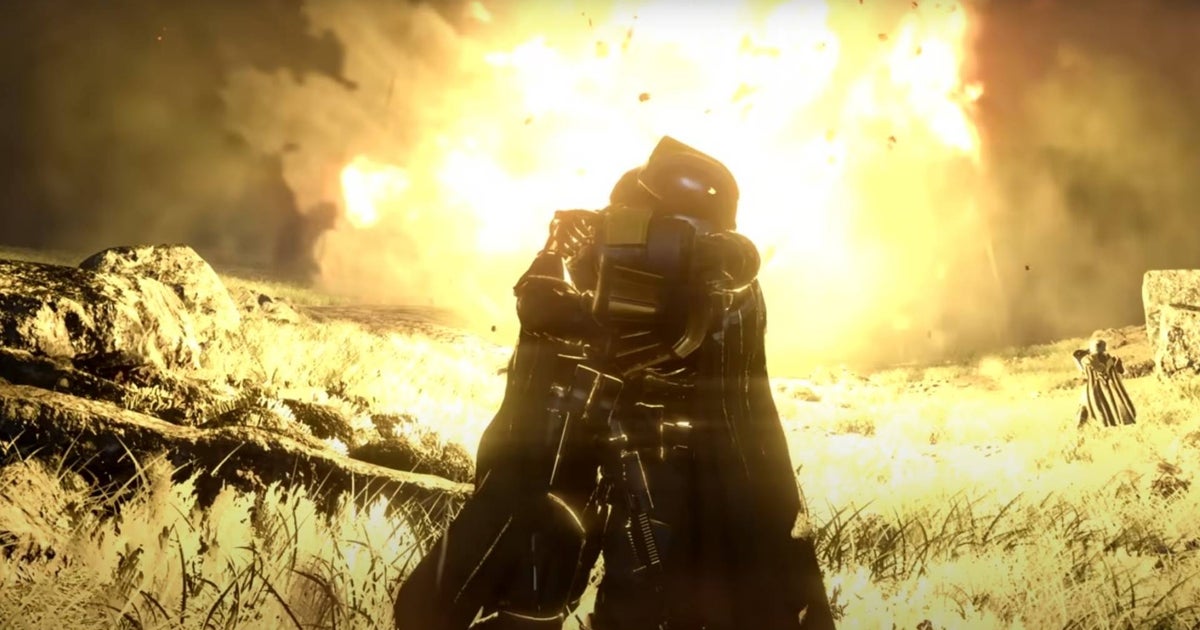Immortals of Aveum is a high-budget first-person magic shooter from Ascendant Studios, a new team of industry veterans who’ve worked on games like Call of Duty and The Walking Dead: The Whistleblower Series. In fact, Call of Duty’s inspiration is clearly how the game tries to aim for magic and mystery–but does so in the manner of a massive AAA shooter. But it’s not just a hallway shooter; Ascendant Studios has melded multiple genres together to create something unique.
We sat down with Tyler Sparks, lead level producer at Ascendant Studios, to discuss the new project – what Ascendant thinks makes this unique game stand out, how to keep players engaged from the start, and why single-player is still important .
iGamesNews: How important is making a good first impression for Ascendant Studios?
Taylor Sparks: It’s huge. This is our breakout game, and the studio itself was handpicked – we’re a seasoned, seasoned group of developers who put a ton of experience into creating the world and the incredible cinematic campaign. The stakes are pretty high, especially considering the unique nature of the game. This isn’t just a standard looter shooter or anything like that. We have a very unique and amazing first person shooter game.
What was the film angle that attracted Ascendant Studios?
We’ve got a pretty epic story told here. Yes, it’s a shooter, but it’s also a fantasy game. We’re dealing with a huge world with a lot of backstory and very deep characters. Therefore, it was very important for us to provide an immersive single-player experience for the campaign.
Why is it so important to focus on single player?
This has been the goal from the beginning. It started with the vision of Brett (Robin), who first had the idea many years ago, and we’re all big fans of this single-player experience. There aren’t many these days, and the experiences are a bit sparse and far between.
But I think taking the time to tell a good story through the lens of first-person combat is a very specific angle that we want to execute perfectly.
That’s what we wanted to do, and it’s what the game has been doing since the beginning.
Is an epic first-person story game the best way to build Ascendant’s reputation?
Whether or not it’s the best way to build our reputation, that’s what we do.
You could choose to do any number of popular games right now, but for us, it’s not about making a cash cow or making something that’s going to be a hot topic right now. It’s about making the best game we want to make, the best way we know how.
How do you make sure it starts up smoothly?
Well, it starts with making sure the public understands our game. That’s why we try to be transparent in all its aspects. We’re pretty much open about what the game is, what it’s going to be, what features it has, and how these things play together because we don’t want any ambiguity.
Knowing exactly what you’re getting and what you’re getting and then making sure we communicate that, I think that’s key.
Will it be launched technically?
Speaking of game releases, I’ve released a dozen games now, and I think everyone wants to say the same about every game they make.
However, I think the difference here is that we’ve taken the time to make the game what we want it to be.
We’ve achieved what we wanted to do. I think that’s the most we can do at this stage, we’re very confident in the product we’ve put together, and I’m very confident that people are going to love it.
What does Immortals of Aveum success look like?
You can pass metrics like sales and stuff like that, but I think the most important thing for us is that everyone embraces the game the way we want it to.
We had this vision, a goal and a goal, and we actually got there. The public’s acceptance of it bears this out. Do they understand it and like it, is it something they want to play? We’re pretty confident about that, but you don’t know until the public gets its hands on it.
In your words, what is it that you want people to understand about Immortals to be unique?
It’s about understanding the nature of first-person magic shooters.
We’ve moved away from guns and into a completely unique fantasy world where over 25 spells from five different classes can be intertwined in super unique ways.
I think it’s a new genre. There’s something similar, but what we’ve come up with is a very unique combat system placed within a very unique story.
How do you make it deep and complex without making it complicated?
This is the biggest challenge. We set out to make sure combat is simple and accessible, yet super satisfying to master. So the idea here is not to throw it all at you at once.
We don’t just say, “Here’s 3 schools of magic, 25 different spells, come on!” We introduce the spells slowly, starting with spells that are typical of that school of magic.
The first Force spell is a very specific, targeted, precise shot, and your first Chaos spell is sort of like a shotgun, conjuring up those concepts.
We take the player into the game with concepts that are familiar to the player, and then expand on that as you learn more about the game and the spells become more interesting, different, and creative.
We’ve slowly built this tapestry of functionality for you to use, so by the end of the game, you’re that epic battle mage.
You also describe Immortals as “tactical”, what makes it particularly tactical?
The great thing about this spell is that you don’t just have to fight the first enemy in front of you.
One of the more interesting ways I like to play is that there are some enemies close to the back of the pack–enemy mages will cast spells like snipers. We have spells that allow you to stand back and interrupt an enemy’s spell, take them out with a headshot while they’re stunned, and then turn your attention to the front of the game.
There are also spells that launch enemies into the air. So if you don’t want to deal with one set, you can temporarily disable them while working with another. Or you can just forget about it all, jump in the middle and start having a blast.
The more you learn about the skills and abilities available, the more options you will have. Any combat scene can be approached in a variety of ways.
When you design encounters that are approached in multiple ways, are you actually trying to make them do what they want, or are you trying to guide them in their choices one way or another?
We focus on encounters of all kinds. There might be a “better” way to handle an encounter, like if it’s in a narrow hallway, a linear explosion would easily take people out – but we won’t force the player to do anything unless it’s like Same as the tutorial.
We’ll be throwing all sorts of things into it, but it’s not designed to force you into any particular style of play. We want and encourage you to play the game any way you want – which is why you can reset your skill trees at any time. Playing as a blue mage, coming back as a green mage, coming back to do those three things, there are so many different ways you can combine this kind of gameplay, we don’t want to limit it.
Is trusting the player’s abilities through cleverly marked puzzles and optional areas a specific choice?
I think it’s more that puzzles have a language. For some, the initial learning curve can be steep, while others pick it up quickly. We’re figuring out how the puzzles work in the world and slowly adding mechanics as you go. The first pair can be a bit difficult, but it’s up to the player to use their abilities to piece them together.
With the different RPG elements in Immortals of Aveum, how do you make sure they all add something of value to the game and not just make up the numbers?
Everything is well thought out around building a battle mage. So all the gear amplifies certain aspects of the player in different ways, there are no one-off gear, there is no grinding, all gear is about progression.
That’s not to say you’ll get every piece of gear though, you might miss out on some things, and you might have to go back to certain parts of the level later.
The idea is that we give you the components to build your own puzzles, no one-offs. It’s not like, for example, blue gear in Destiny where you’re constantly just dismantling, really nothing.
All the parts here can be used to create a functioning mage.
What does Unreal Engine 5.1 allow you to do?
Unreal Engine 5, especially 5.1, has some really cool features that allow us to specialize in those big levels.
Three in particular are the most useful: Lumen, Nanite, and World Partitions.
Lumens are the lighting system Unreal uses, and usually when you talk about level development you see a lot of statically placed lights that predict where the player is going.
But with Lumen, you can adjust and make those lights and reflections react to the player. It also allows us to optimize performance, which is a big thing Nanite does.
It basically means that no matter where you are in the world, the textures around you will be of the highest quality, and the ones farthest from you will be of the lowest quality. So as you move things in front, the quality goes up, things behind go down, and the level of detail changes dynamically.
So we can have these huge levels, and once you’ve finished part of it, it doesn’t even suck anymore so that performance can be redirected elsewhere – which is what World Partitions does.
World Partitions is the system for loading geometry blocks, so in a level it’s not like you come in with everything loaded and every mountain has to be fully rendered later.
We loaded and unloaded as we went. These tools really freed up the art team to create these intense and immersive worlds with truly spectacular flora and fauna.
Do you have a favorite part that we’ve seen?
I’m sounding rigid, but of course I’m proud of it all. My current favorite level changes every week because I’ll jump into a level I haven’t seen in a while and be like “what the hell!”
They’re a little late because things start to get more complicated. We have 12 different biomes, probably more than that, we have mountains, craters, it’s a crazy environment.
The most powerful moment for me today was the first big find in Pale Forest, where you turn a corner and get that sense of scope and scale. You suddenly realize that you don’t see things that draw you in, and it was the first time I really felt immersed in a world.
That moment as a player is so powerful because that’s when it grabs you and says, ‘You’re in the Aveum now’, go explore.


.png?width=690&quality=70&format=jpg&auto=webp)
.png?width=690&quality=70&format=jpg&auto=webp)







